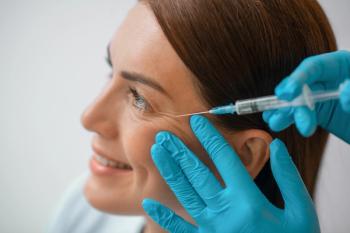
- Dermatology Times, October 2019 (Vol. 40, No. 10)
- Volume 40
- Issue 10
Social media personas: Are you a rockstar or a rebel?
Dr. Gregory Buford believes success on social media means cutting through the clutter by combining key personality traits and posting the right mix.
With very low entry costs and instant worldwide reach, social media has largely replaced print and TV marketing. On the downside, however, the lack of peer review allows people to "game" online media by publicizing products or treatments that lack evidence and, ultimately, consumers suffer.
That’s according to Gregory A. Buford, M.D. who presented “The Dark Side of Social Media: Where We Are Heading and What Should Be Done,” at this summer’s Cosmetic Bootcamp in Aspen, Colo.
"They're so surrounded by all this information. They don't know what's real or unreal. They can get pulled into this cult of personality and fooled," says Dr. Buford.
And, according to the Denver-based plastic surgeon, battling the unscrupulous underbelly of social media requires educating patients and calling out posers.
The Personalities
Dr. Buford divides the social-media jungle into a handful of archetypal personalities:
- The newbie - Social-media neophytes may post three times one week and nothing the next. "It's very irregular in frequency and content. There's no focus - they're all over the place."
- The professor- These providers offer pure education, just the facts. "Botox (abobotulinum toxin A, Allergan) does this; this laser does that. It's boring." There's no fluff, he says, but also no patient stories to hook readers.
- The rockstar - "Look at me! It's an emphasis on the individual. It's a plastic surgery page, but somehow all you're seeing is their Chanel shoes." Such people often anoint themselves as role models, says Dr. Buford, but such a distinction can only be conferred by peers who respect you and your work.
- The rebel - The 'James Dean' of aesthetic healthcare, this person promotes novel techniques, with few if any post-treatment pictures. "They never get around to showing you how it turns out when they put all the ingredients together. And their procedures are often trademarked - get over yourself."
- The multi-level mama - These people push multilevel marketing lines at the expense of science. "There's often a very creative use of photography, and I say that very nicely. We all know what Photoshop is." When Dr. Buford sees such posts, he's been known to call out those doing the posting, and he encourages colleagues to do likewise.
To understand where social media is heading, he suggests reading The Death of Expertise: The Campaign against Established Knowledge and Why It Matters by Tom Nichols. "You have the anti-vaxers arguing with you online, even though you went to medical school or nursing school and know 100,000 times more than they do."
Cutting Through the Clutter
To cut through social media clutter, he recommends combining the credibility of the expert with the eye candy of an authority. An expert has verifiable credentials, peer recognition and a client-centric online presence, says Dr. Buford, but often a small following. "It's like having a Picasso in the basement."
Conversely, self-appointed healthcare gurus often have huge, but not well-educated, followings. "If you look at who follows them, it's not other medical professionals - it's bots and consumers." Melding the best of the expert and authority personas allows one's online presence to strike a happy medium, says Dr. Buford.
He also recommends educating patients about what to look for online. "Tell them just because someone makes a claim doesn't necessarily make it true."
Disclosures:
Dr. Buford has been a consultant for Revance, a speaker/consultant for Evolus and Thermi Aesthetics, a speaker/consultant and Master Facial Injectables Trainer for Allergan, an advisory board member for MEND Nutrition, and an advisor/investor for Fruit Street and Monj.
References:
Buford, G. "The Dark Side of Social Media: Where We Are Heading and What Should Be Done," The Cosmetic Bootcamp. June 23, 2019.
Articles in this issue
over 6 years ago
Non-melanoma skin cancer increases in the elderlyover 6 years ago
Looming medical billing and coding changes in healthcare policyover 6 years ago
7 tips to get the most from your social media postsover 6 years ago
IL-17 inhibitors may fill treatment gap in rosaceaover 6 years ago
Head and neck melanoma characteristicsNewsletter
Like what you’re reading? Subscribe to Dermatology Times for weekly updates on therapies, innovations, and real-world practice tips.











